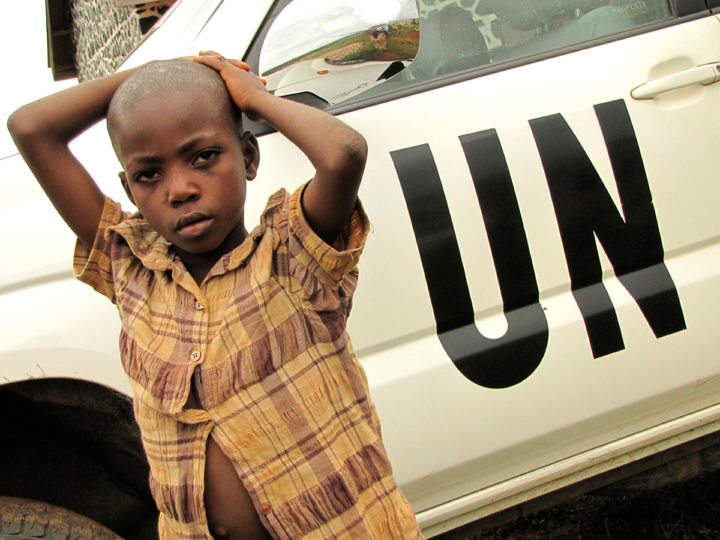Safeguarding Children in Conflict and Crisis – a toolkit for peacekeepers
In 2018, following years of field-based research, Professor Rosa Freedman at the University of Reading, in partnership with the NGO Keeping Children Safe, launched a safeguarding toolkit. This has been trialled and tested in UN entities and is being applied by armed forces in some of the largest troop-contributing countries in the world as well as large NGOs working in conflict and crisis zones. Professor Freedman’s expertise is now widely sought and she was recently appointed to the UN Secretary General’s Civil Society Advisory Board on Sexual Exploitation and Abuse.
Keeping children safe
The vast majority of the more than 100,000 United Nations (UN) uniformed peacekeeping personnel perform their jobs with courage, dedication and professionalism. Yet those who commit sexual offences betray the trust of those they have been sent to protect. As a result, system-wide reform is necessary to ensure that such abuses never again occur with widespread impunity. While there is general agreement at the UN, in member states, and from civil society about what needs to be done to address the issue of sexual exploitation and abuse by peacekeepers, few practical solutions have been proposed.
Until now, laws, policies and practices to tackle sexual exploitation and abuse have operated in diverse ways across different scales, from international and UN level, to a local level where the peacekeeping operation is being carried out, and within the countries that contribute troops to peacekeeping operations.
A project team headed by Professor Rosa Freedman from the University of Reading, working with NGO Keeping Children Safe, conducted research in peacekeeping entities including in Liberia and Haiti, to identify the barriers to improving child safeguarding. The team used the findings to develop a robust, evidence-based solution that can be adapted to the local context.
A universal toolkit
The safeguarding toolkit, launched in May 2018, builds upon Professor Freedman’s expertise and research, and provides the means to safeguard children from peacekeeper sexual exploitation and abuse. Professor Freedman worked closely with military and government policymakers around the world to convince them that the toolkit can make a difference. The toolkit spells out ways to assess local policies and practices; develop robust mapping of relevant laws on child safeguarding; and design context specific policies and procedures, training and follow-up.
It has been adapted for use in Peacekeeping Training Centres, international organisations, and by other actors and entities involved with peacekeeping. It has also been implemented by the armed forces of troop-contributing countries and in 16 of the largest NGO partners of the UK Department for International Development.
Professor Freedman’s expertise is now highly sought after. She has advised over 300 military personnel and diplomats on safeguarding, been invited to serve on the FCO’s Women, Peace and Security Steering Committee, and in February 2019 was appointed to the UN Secretary-General’s Civil Society Advisory Board on Prevention of Sexual Exploitation and Abuse.
Acknowledgements and credits:
This work was supported form funding by the Arts and Humanities Research Council, British Academy and Global Challenges Research Fund.
Further reading
Blakemore, S. and Freedman, R. (2019) Safeguarding in conflict and crisis. Forced Migration Review (61). pp. 52-55. ISSN 1460-9819
Blakemore, S., Freedman, R. and Lemay-Hébert, N. (2019) Child safeguarding in a peacekeeping context: lessons from Liberia. Development in Practice, 29 (6). pp. 735-747. ISSN 1364-9213 doi: https://doi.org/10.1080/09614524.2019.1614148
Freedman, R. (2018) UNaccountable: a new approach to peacekeepers and sexual abuse. European Journal of International Law, 29 (3). pp. 961-985. ISSN 1464-3596 doi: https://doi.org/10.1093/ejil/chy039

